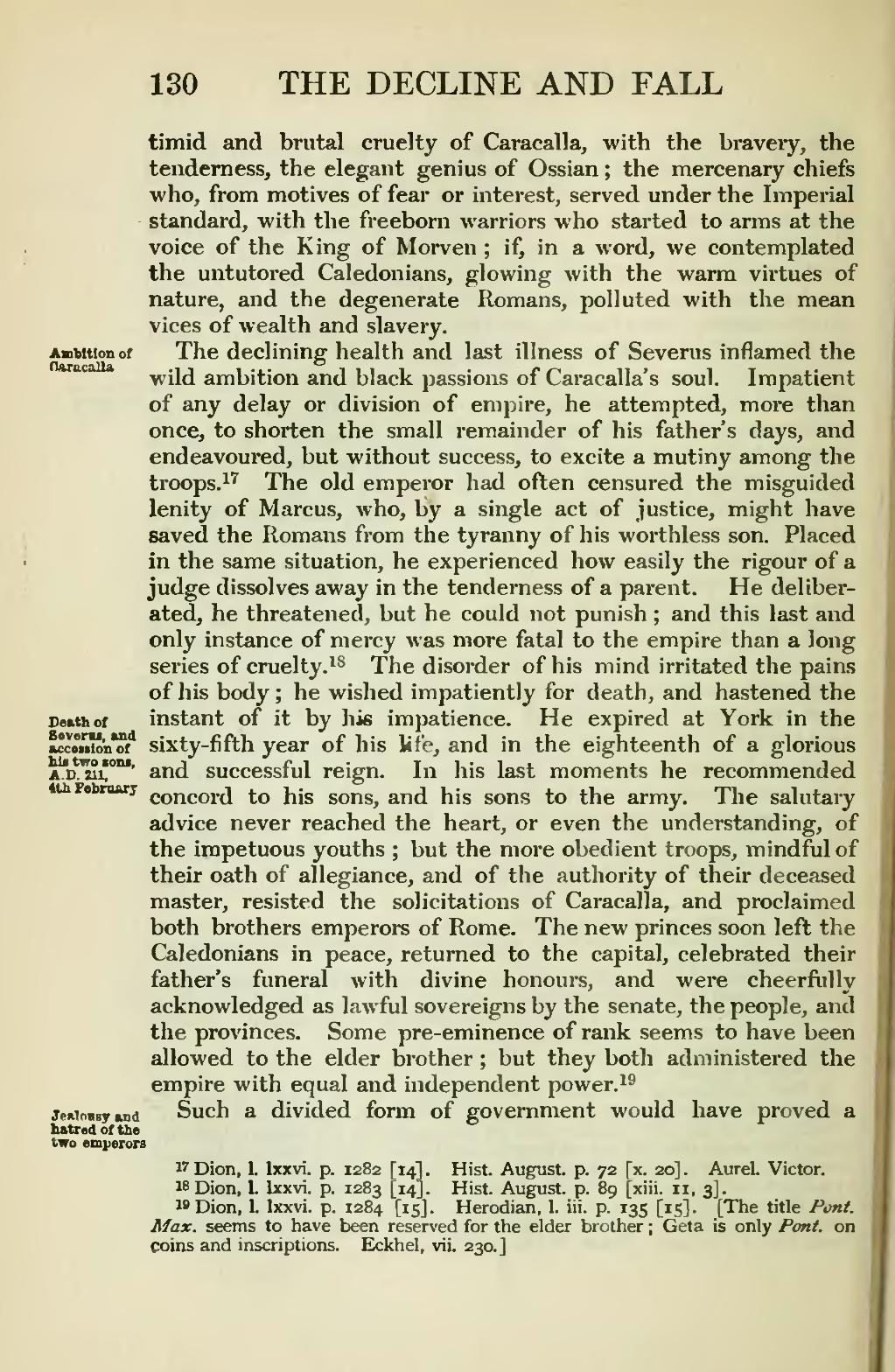timid and brutal cruelty of Caracalla, with the bravery, the tenderness, the elegant genius of Ossian; the mercenary chiefs who, from motives of fear or interest, served under the Imperial standard, with the freeborn warriors who started to arms at the voice of the King of Morven; if, in a word, we contemplated the untutored Caledonians, glowing with the warm virtues of nature, and the degenerate Romans, polluted with the mean vices of wealth and slavery.
Ambition of Caracalla The declining health and last illness of Severus inflamed the wild ambition and black passions of Caracalla's soul. Impatient of any delay or division of empire, he attempted, more than once, to shorten the small remainder of his father's days, and endeavoured, but without success, to excite a mutiny among the troops.[1] The old emperor had often censured the misguided lenity of Marcus, who, by a single act of justice, might have saved the Romans from the tyranny of his worthless son. Placed in the same situation, he experienced how easily the rigour of a judge dissolves away in the tenderness of a parent. He deliberated, he threatened, but he could not punish; and this last and only instance of mercy was more fatal to the empire than a long series of cruelty.[2] The disorder of his mind irritated the pains of his body; he wished impatiently for death, and hastened the Death of Severus, and accession of his two sons, A.D. 211, 4th February instant of it by his impatience. He expired at York in the sixty-fifth year of his life, and in the eighteenth of a glorious and successful reign. In his last moments he recommended concord to his sons, and his sons to the army. The salutary advice never reached the heart, or even the understanding, of the impetuous youths; but the more obedient troops, mindful of their oath of allegiance, and of the authority of their deceased master, resisted the solicitations of Caracalla, and proclaimed both brothers emperors of Rome. The new princes soon left the Caledonians in peace, returned to the capital, celebrated their father's funeral with divine honours, and were cheerfully acknowledged as lawful sovereigns by the senate, the people, and the provinces. Some pre-eminence of rank seems to have been allowed to the elder brother; but they both administered the empire with equal and independent power.[3]
Jealousy and hatred of the two emperors Such a divided form of government would have proved a- ↑ Dion, 1. lxxvi. p. 1282 [14]. Hist. August, p. 72 [x. 20]. Aurel. Victor.
- ↑ Dion, 1. lxxvi. p. 1283 [14] . Hist. August, p. 89 [xiii. 11, 3].
- ↑ Dion, 1. lxxvi. p. 1284 [15]. Herodian, 1. iii. p. 135 [15]. [The title Pont. Max. seems to have been reserved for the elder brother; Geta is only Pont, on coins and inscriptions. Eckhel, vii. 230.]
